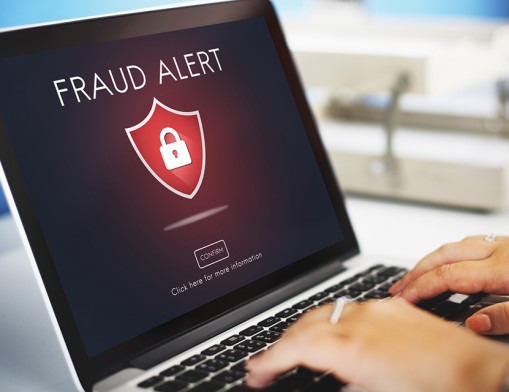CAUTION: IT IS A SCAM!
Six Signs You are A Target For Wire Fraud
By: Jocelyn Wood | Category: Financial Services | Issue: April 2018

Wiring money is a way to send and receive money fast. It’s also a prime target for fraud. Wire fraud often happens when dishonest people convince you to willingly send funds under false pretenses. Because money moves fast in a wire transfer, it is nearly impossible to get it back. Banks are required by law to make deposited check funds available within days, but it may take weeks to uncover a fake check. You are liable if you deposit fraudulent funds into your bank account. If a check you deposit turns out to be a fake, you are responsible for repaying the bank. Don’t be fooled. Before sending or accepting money, ask yourself these questions.
Do I really know this person?
Is the person a new acquaintance? A new romance? Scammers often use social media, email or phone to target victims. They will do whatever it takes to develop a seemingly real relationship with you, which may include meeting you in person.
Be on guard for romance scams.
Is this person claiming to be a family member in trouble?
It’s called a grandparent scam. A criminal pretends to be a relative who needs money, e.g., they’re in trouble, had an accident or need bail money. They ask you to send money fast via gift cards or wire transfer, and beg you not to tell anyone. Always call the person at a known number (not the caller ID number) to confirm their story.
Is this person claiming to be a government agent, police officer or banker investigating a series of fraud cases and needs my help?
Scammers spoof caller ID and email addresses to look as if it is a trusted company or friend calling. Do your research, check the facts and talk to your bank about the transaction before sending money.
Is this person offering a get-rich deal. Am I asked to keep it secret?
Do not pay upfront for a promise to make money fast. Watch out for prize and inheritance scams that require you to pay taxes in advance.
Did this person come to my door or are they offering me an advance-payment service?
“No thanks.” Do not pay for services in advance. This also goes for things like debt relief, loan offers, online purchases or jobs. Watch out for services that require payment through electronic transfer to a home office or to another individual who they claim to be the boss.
Are you feeling pressured to send money?
Be suspicious of urgent money requests. Scammers want you to act fast and use threats and emotional ploys. STOP. Slow down and check the facts. Discuss the transaction with your bank, the police or a friend before sending money.
RCB Bank Financially Fit
For more information, contact:
More about RCB Bank Financially Fit:
More ArticlesSubscribe
For Free!
